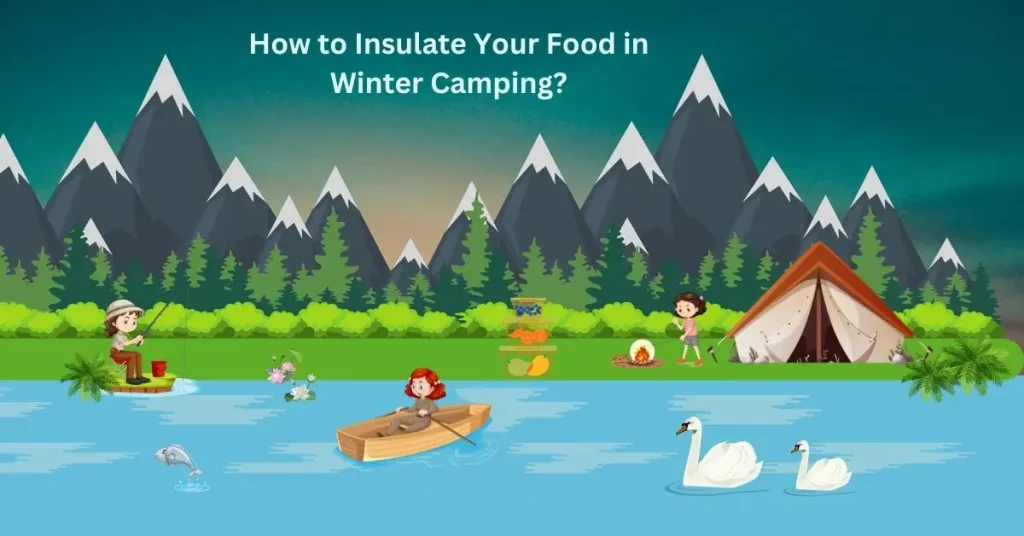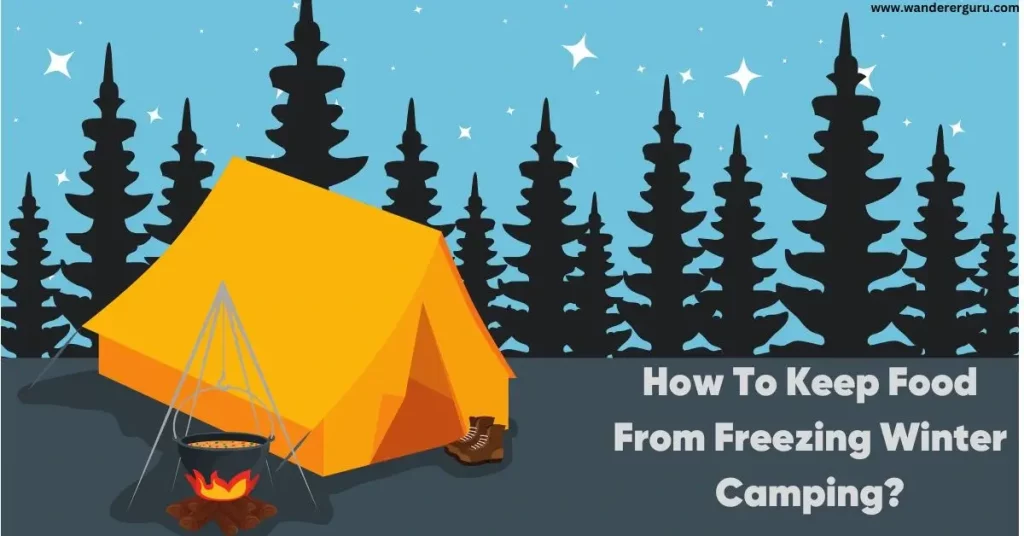Planning a camping trip and don’t know how to keep food from freezing during winter camping? Then you are at the right place. In this article we will discuss that how to preserve your food safely. When going for snowy outdoor adventures. Freezing temperatures can create challenges to storing decaying and maintaining their freshness.
After reading this guide you can enjoy cheerful and nourishing meals even in the coldest winter. From insulation strategies to bright packing ideas, we’ve got you covered. Let’s dive in and discover how to keep your food safe and ready throughout your winter camping experience.
Understanding the Challenges
Winter temperatures can quickly freeze food, making it unpleasant and potentially unsafe. Extreme cold and frosty conditions threaten spoilable items and even beverages. It is essential to employ effective techniques to keep your food at a safe and enjoyable temperature to fight this.
Planning Your Meals
When preparing for winter camping, careful meal planning prevents food from freezing. Opt for food items less unsafe to freezing, such as canned goods, dry ingredients, and foods with lower water content. Incorporate warm and genial meals into your menu, as they can help keep your body warm while resisting freezing temperatures.
How to Insulate Your Food in Winter Camping?

Insulation is vital when it comes to protecting your food from freezing. Wrap your food tightly in multiple layers of aluminium foil or plastic wrap. This helps to keep heat and create a barrier against the cold air. Additionally, consider using insulating materials like newspaper, blankets, or thermal wraps to insulate your packed food further.
Utilizing Insulating Containers for food
Investing in high-quality, insulated containers can be a game-changer for winter camping. These containers are designed to maintain the temperature of your food for extended periods. Look for models with excellent insulation capabilities and airtight seals. They can effectively prevent heat loss and keep your meals warm and enjoyable throughout your camping trip.
Using of Hot Water Bottles
Hot water bottles can be an effective heat source to keep your food from freezing. Fill a few sturdy bottles with hot water and place them critically inside your cooler or food storage area. The bottle heat will emit and help maintain a stable temperature, protecting your food from freezing.
Creative Storage Solutions
Think outside the box when storing your food during winter camping. Consider cover your food in the snow, as the insulating properties of snow can help regulate temperature. Alternatively, find a suitable natural icebox, such as a well-insulated cave or a hollowed-out snowbank. These unique storage solutions can offer protection from freezing temperatures.
Bonus:
How To Keep Milk Cold When Camping?
Monitoring Temperatures
Regular monitoring of temperatures is essential to ensure that your food remains at a safe and optimal temperature. Use a good thermometer to regularly check the temperature inside your cooler or storage area. This will allow you to make necessary adjustments and prevent food from freezing or reaching unsafe temperatures.
Proper Food Handling and Safety
Proper food handling and safety practices are crucial, especially during winter camping. Follow these guidelines to make sure the quality and safety of your meals:
- Thoroughly cook your food: Properly cooking your food enhances its flavour and helps kill any possible bacteria or pathogens. Ensure your meals are cooked to the recommended internal temperature for food safety.
- Store leftovers properly: If you have leavings food, store it promptly in sealed containers and place it in a cooler or insulated bag. Discard any unstable residue left at room temperature for more than two hours.
- Avoid cross-contamination: Prevent cross-contamination by keeping raw meats and other easily spoilt items separate from ready-to-eat foods. Use individual cutting boards and attachments for raw and cooked foods to minimize the risk of food poisoning illnesses.
- Practice good hygiene: Wash your hands carefully with soap and water before handling food. This helps avert the spread of bacteria and ensures the safety of your meals.
Storing Food Outside in Winter
Storing food outside in winter can effectively prevent freezing but requires careful consideration. Follow these guidelines when storing food outdoors:
- Choose a suitable storage location: Find a secure spot away from animals and potential contaminants. Look for shaded areas where the temperature remains relatively stable.
- Use insulated containers: Place your food in insulated containers or coolers to protect against freezing temperatures. Ensure that the containers are tightly sealed to maintain the integrity of the food.
- Monitor temperatures: Regularly check the temperature outside to ensure it remains within a safe range. Extreme cold can still freeze food, even when stored in insulated containers.
- Use natural insulation: Use natural insulation, such as snow or straw, to protect your food from freezing temperatures. Create a barrier around the containers to help maintain a more stable temperature. For more ideas, visit my Pinterest.
Conclusion
In conclusion, keeping your food from freezing during winter camping is crucial for maintaining quality and ensuring nourishment in the great outdoors. You can safeguard your provisions from harsh temperatures by implementing effective insulation techniques, such as insulated coolers, wrapping food in layers, and utilizing hot water bottles. Additionally, intelligent packing, proper storage, and careful meal planning play a vital role in preserving the freshness of your food. These practical tips and strategies allow you to enjoy delicious meals even in the frostiest winter camping conditions. Stay prepared, stay warm, and savour your winter adventures!
FAQs
Q.1 What are some food options for cold-weather camping?
Ans: Foods like canned goods, dried fruits, nuts, jerky, and instant soups are excellent options for cold-weather camping.
Q.2 Will food freeze in a cooler outside?
Ans: Food can still freeze in a cooler outside, especially in freezing temperatures. Proper insulation and monitoring of temperatures are essential to prevent freezing.
Q.3 Can you freeze eggs for camping?
Ans: Yes, you can freeze eggs for camping. Crack them into a container, whisk them lightly, and freeze them. Thaw them before cooking.
Q.4 How to keep water from freezing while camping?
Ans: Use insulated water bottles or thermoses to prevent water from freezing. You can also wrap the bottles in insulating materials or place them in thermal covers.
Bonus:

